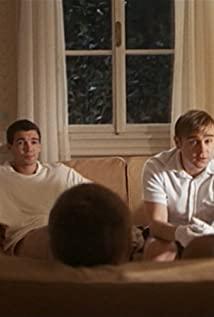Without this "rewind" plot, the film's ending might have been a Hollywood-style declaration of resistance to violence, but Haneke rejects this false satisfaction. He allowed the otherwise closed and self-contained narrative to spread beyond the screen and mocked the beholder of the violence, the audience. The teenager in the film breaks the closed narrative space of the film with the method of "rewinding" (there are also shots of dialogue with the audience), and it is also a wake-up call to Hollywood's dream mechanism, allowing the audience hiding behind the screen to be pulled into this violence. In the joy of the film, the psychological motives of violence and pornography in the heart are nakedly revealed. When the audience is enjoying and obsessed with the violent crimes created by this kind of image, what is often exposed is the ugliness and morbidity of the human being. Haneke refuses to flatter the audience, instead taunting the audience with extreme violence and provocation, and brutally sadistic you while you enjoy the tyrannical pleasure.
View more about Funny Games reviews









